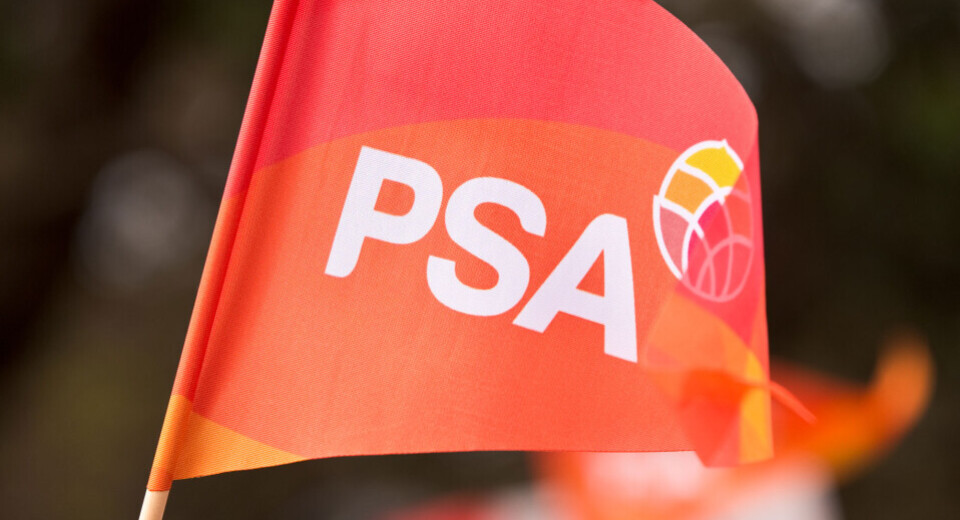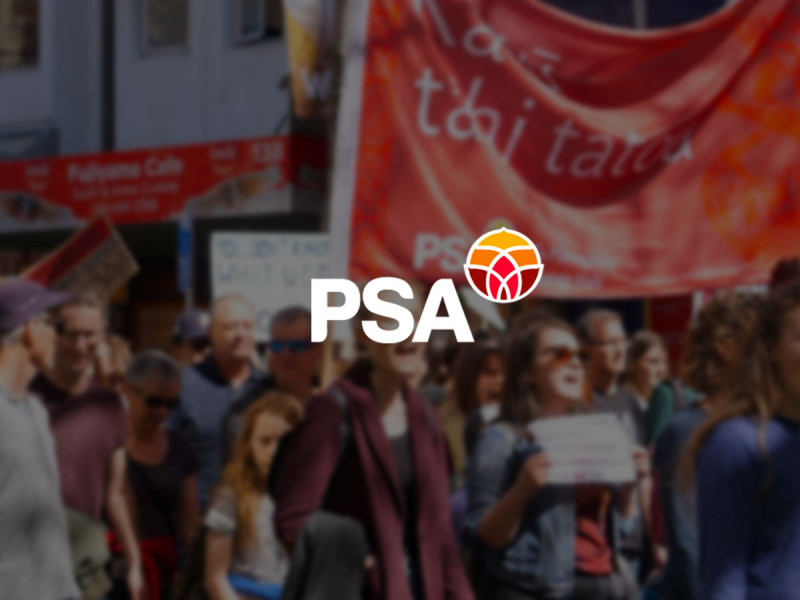PSA Benefits
Unions, like us, help workers to support each other in the workplace and negotiate for improvements in working conditions so members don't have to face problems on their own.
Why join a union?
When workers act together, they have strength and safety in numbers and a better chance at getting what they need at work.
Studies show that unionised workplaces negotiate better pay and conditions. The more members at your workplace, the stronger your bargaining power.
Unions bargain with employers for collective employment agreements (CEAs), as well as helping their members by providing information and advice on work-related issues. We've negotiated hundreds of CEAs across our five sectors. Many of these agreements secured wage increases and additional leave entitlements above the minimum legal standards.

The role of a union includes:
- Representing members on issues involving their collective employment interests
- Negotiating CEAs
- Representing members’ individual rights as employees
- Giving advice and assistance on the rights and obligations of employers and employees
- Representing members in the event of a dispute or personal grievance
Not only do unions look after members on an individual level, they look after members by advocating for positive social changes to improve the societies they live in. We have unions to thank for many of the basic rights we take for granted, including the right for sick leave, parental leave, the five-day week, holiday leave, the right to refuse unsafe work and many other benefits.
Protection and security
In addition to the collective benefits of membership there are a number of individual benefits, including access to help and support if things go wrong at work, such as being subject to unfair treatment, discrimination or bullying.
If, as a member, you find you need help, it is available through a number of channels:
- Te Roopu Tohutohu Manaaki, the PSA’s member advice and support centre, is available 8:30 - 5:00 Monday to Friday for advice and information
- PSA Delegates will often be your first point of contact and can provide support or connect you to your organiser if required
- PSA Organisers are available to try and resolve problems in the workplace, and when required, support members with personal grievances through to mediation.
- Our legal team provides legal advice and support to organisers and represent members in a range of legal forums.
The protection and security of membership is also important in times of change. In uncertain times at work, our collective employment agreements (CEAs) provide greater job security and redundancy compensation when jobs are lost.

Te Rūnanga o Ngā Toa Āwhina
Te Rūnanga o Ngā Toa Āwhina represents and promotes the interests of Māori members and provides a network to ensure Māori have a voice in the PSA, in their workplaces and in our top decision-making bodies.
We’re committed to honouring Te Tiriti o Waitangi across the public sector and inside the Union. Our structures ensure a Māori perspective can be heard in all levels of our organisation.
All members who identify as Māori are automatically enrolled in our Te Rūnanga o Ngā Toa Āwhina.


MyPay
The first of its kind, MyPay is a straight-forward tool that can be used to search and compare salary information across hundreds of professions. Built with the goodwill of PSA members who shared their salary information in the spirit of working together, MyPay advocates for fairer, more transparent pay systems for all.
Through MyPay, our members can easily search our pay survey information to find out more about salary rates for specific jobs and job categories. MyPay can also help us answer some big questions by providing a bigger picture of pay across the sectors where our members work.
Our mission with MyPay is to use the power of collective action to democratise pay information and end pay secrecy to build better working lives for our members.
Campaigns and advocacy
We are actively involved in campaigning issues that are important to our whole membership, as well as on issues particular to specific groups within our membership.
Campaigning is consistent with our purpose and usually involves establishing awareness and engaging the public, politicians and stakeholders to engage in making changes that rectify the issue.
Through our campaigning and advocacy work, we prepare well-researched submissions to select committees, inquiries and other official bodies, meet regularly with those who influence policy and sit on government working parties and project groups. Wherever possible we also collaborate with other unions, employers and groups who are working to achieve common goals.
Our members are often significantly involved in our campaigning activities. Member engagement can range from sharing campaign messaging (for example, sharing social media posts or sending letters to chief executives), to speaking at Parliamentary Select Committees.
Education and courses
A range of training courses are available to our members.
All delegates must complete our delegate training so they are equipped with the tools (and confidence to use them) needed to be a delegate in their workplace. Training includes exploring the roles and rights of delegates, member representation, and navigating scenarios that may be encountered in the workplace.
Many PSA networks also offer training opportunities, such as the Women's Network and PSA Youth’s Leadership Training.
Previously offered in person only, we are excited to be introducing more opportunities for delegate training online in the future.


Our delegates
Our union is democratically run by our members. Members elect delegates as their union representatives within their workplace, who represent them and help us make important decisions, such as what to focus on during negotiations with their employers, and determining our policies and how we function as a union.
Delegates play an important role in building our influence in workplaces, whether it’s to do with improving pay and conditions, or giving members a collective voice in the decisions that affect their work.
Delegate duties can include organising delegate meetings, talking to new and prospective members about the benefits of membership and providing support to members experiencing workplace issues.
Our governance structure
Our governance structure is democratic, designed to enable our members to have a say in the decisions that affect them at work and in shaping our policy.
Workplace and enterprise level structures are made-up of delegates elected by members, delegate committees and annual members’ meetings. These structures feed into our governance level structures, Sector Committees, the Executive Board and the National Delegates Congress, which directly influence PSA policies.
Sectors are central to our democratic structure, as they provide the connection between members in enterprise level structures and the Executive Board. These sectors, and their associated structures, are key to how we function. The five sectors are the Community Public Services sector, DHB sector, Local Government sector, Public Service sector, and State sector.
Each one of these sectors has its own committee and is represented on the Executive Board. A ‘Sector Committee’ is a committee of members within a sector established in accordance with the PSA Rules.
Networks
Joining one of our networks connects you to other members with similar interests or issues. Networks are self-managing and host a range of events, training opportunities and conferences, issuing regular communications about their activities and opportunities to be involved.
Our networks are an excellent way to get more involved with your Union. Our campaign work on Equal Pay has been, and continues to be, a success because it is championed by the Women's Network, and because of the PSA Youth Network we have some of the best and most active youth members in the country.
Networks are driving change within our Union, and we couldn't be more proud of what we're accomplishing together.


MyPSA
As a member, a MyPSA account makes it easier for you to keep track of what's happening in your industry, update your contact information access sector or enterprise updates and more.
PSA Plus
As a PSA member you have access to discounts on a range of products and services, from cheap holiday homes to health insurance.






